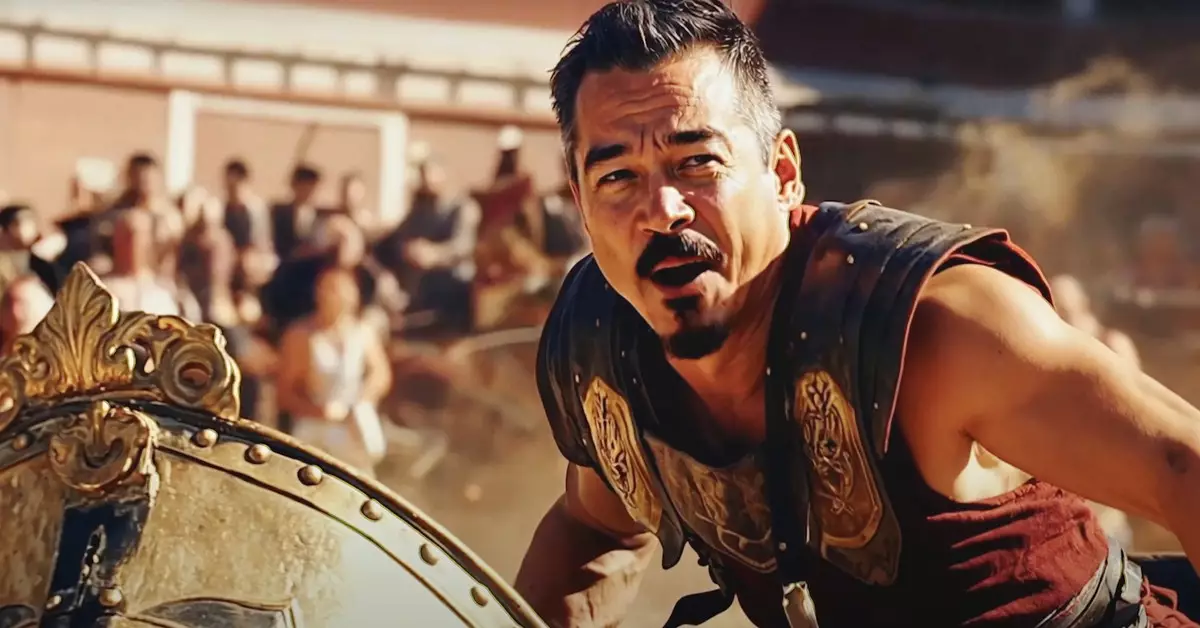The emergence of artificial intelligence (AI) in creative industries has stirred considerable debate and excitement, particularly in the realm of filmmaking. As technology continues to evolve, companies like TCL are experimenting with AI to produce content for their streaming platforms. However, as demonstrated by TCL’s recent batch of AI-generated short films, this experimentation raises complex questions about the future of storytelling, animation, and viewer engagement.
Earlier this year, TCL unveiled a trailer for “Next Stop Paris,” a short film that narrated a rather melodramatic story through seemingly rudimentary AI animation techniques. The backlash was immediate; viewers criticized the lifeless characters and jarring animation quality that made the film resemble a low-budget production rather than a technological marvel. However, TCL remained undeterred, rolling out not just one but five new AI-generated films, all set to debut on its TCLtv Plus streaming service. The curiosity surrounding these films was palpable: Could they possibly improve upon the disappointing offerings of “Next Stop Paris,” or would they reinforce the notion that AI in filmmaking is still in its infancy?
Upon viewing the new lineup, it became evident that while the animation may have improved to a modest degree, the fundamental storytelling issues persisted. Each film exhibited typical flaws associated with AI-generated media: clunky narratives, awkward character interactions, and voice acting that failed to resonate emotionally with audiences.
Take, for example, the film reminiscent of Ray Bradbury’s poignant short story “All Summer in a Day.” It tackles a young girl’s struggle to experience sunlight on a planet where its appearance is rare and coveted. While the premise holds potential for rich visual storytelling, the film’s execution falters. The AI-created animation detracts from the emotional gravity, presenting a story that grows increasingly convoluted as the protagonist navigates a maze of bizarre and unrealistic scenarios. How can a viewer feel empathy for a character trapped in circumstances that are hard to follow?
Another film, “Project Nexus,” took a rather simplistic route, unfolding like an incomplete trailer filled with half-formed ideas and questionable character development. The premise revolves around a radioactive rock that grants supernatural abilities to a group of teens after an explosion in a prison context. Here, the stakes could have been compelling, yet the execution left much to be desired. The characters, although less human in design, still lacked the vibrancy needed to engage an audience.
Even “docufiction” attempts like the one featuring Dr. Warren Brown fail to provide a coherent narrative, oscillating between stylized reenactments and actual storytelling. This film aims for a gritty realism that ultimately collapses under the weight of its peculiar AI-generated images, leading to a cringe-inducing climax. Moments meant to invoke empathy or shock instead flutter past due to the incongruity of the visuals with the gravity of the subject matter.
While some narratives aimed for humor, such as “The Audition,” they fell flat under their own ambition. As the story twisted into absurd territories involving deepfakes and whimsical requests from a casting director, the original concept became painfully convoluted. The skit-style humor lost its charm, transforming into a chaotic visual cacophony devoid of genuine wit. The disconnection between the AI-generated visuals and the intended comedic context made it difficult for viewers to find enjoyment, leading to an experience more perplexing than amusing.
The final film, exploring a woman’s metamorphosis into a slug, serves as a disconcerting metaphor for isolation. Yet, rather than unpacking the emotional layers of the protagonist’s struggle, the AI’s inability to generate relatable imagery turns a potentially haunting discourse into unsettling visuals. The discomfort resonates, but it’s less a commentary on the human condition and more an awkward exploration of AI limitations.
TCL’s experimentation with AI-generated short films acts as a magnifying glass, highlighting not only the technology’s current deficiencies but also illuminating the obstacles it faces in replicating human creativity and emotional depth. As our society becomes increasingly enamored with technological advances, it’s crucial to remind ourselves that artistry involves more than just pixel-perfect images. It demands the kind of nuance, empathy, and storytelling finesse that AI has yet to master.
As we watch these films, we are reminded of the potential for AI to aid in storytelling rather than attempting to fully replace human creators. Until that synergy can be achieved, the role of AI in filmmaking will likely remain contentious—a fascinating experiment teetering between innovation and imitation.


Leave a Reply